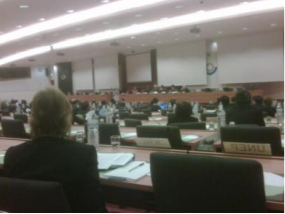
Recent disasters have shown that unnecessary bureaucractic bottlenecks can slow the entry of relief in countries affected by natural hazards. At the same time, a lack of control and oversight by domestic authorities can lead to a flood of unnecessary and inappropriate international “relief”. Customs officers face the difficult task of finding ways to expedite the entry of the right relief without being overwhelmed by the wrong consignments.
The World Customs Organization (WCO), an international organization with 176 member states, works towards the effectiveness and efficiency of customs administration across the globe. To facilitate the work at borders, the WCO has developed a number of international instruments meant to simplify and streamline customs clearance of humanitarian relief. Among these are several treaty provisions, a set of operational recommendations and a model agreement. The IDRL Guidelines drew on these instruments for its suggestions to states on these issues.
On March 1, the WCO invited the UN Office for the Coordination of Humanitarian Affairs (OCHA) and the IFRC to present to its Permanent Technical Committee (PTC) 187th/188th about the problems and best practices of customs clearance in disaster settings. WCO Deputy Secretary General Sergio Mujica Montes underscored that recent disasters, including the February 27 earthquake in his own country of Chile, had clearly shown the importance of good preparation for customs in disasters.
In its conclusions, the PTC noted the need for effective systems of customs clearance and decided to make the issue a priority area of work for the next year. The IFRC hopes to continue to collaborate with the WCO and OCHA in assisting customs administrations to strengthen their disaster readiness.